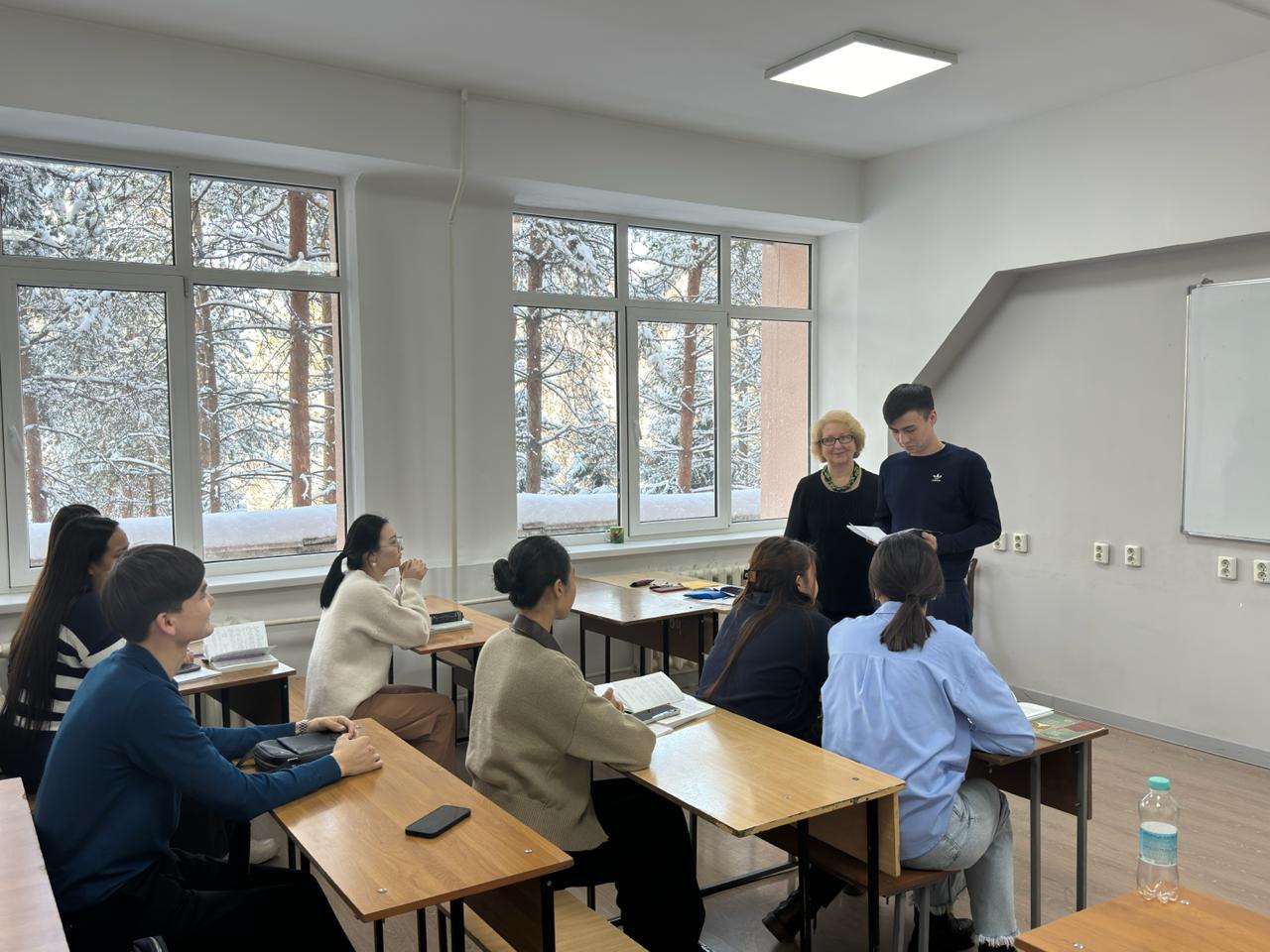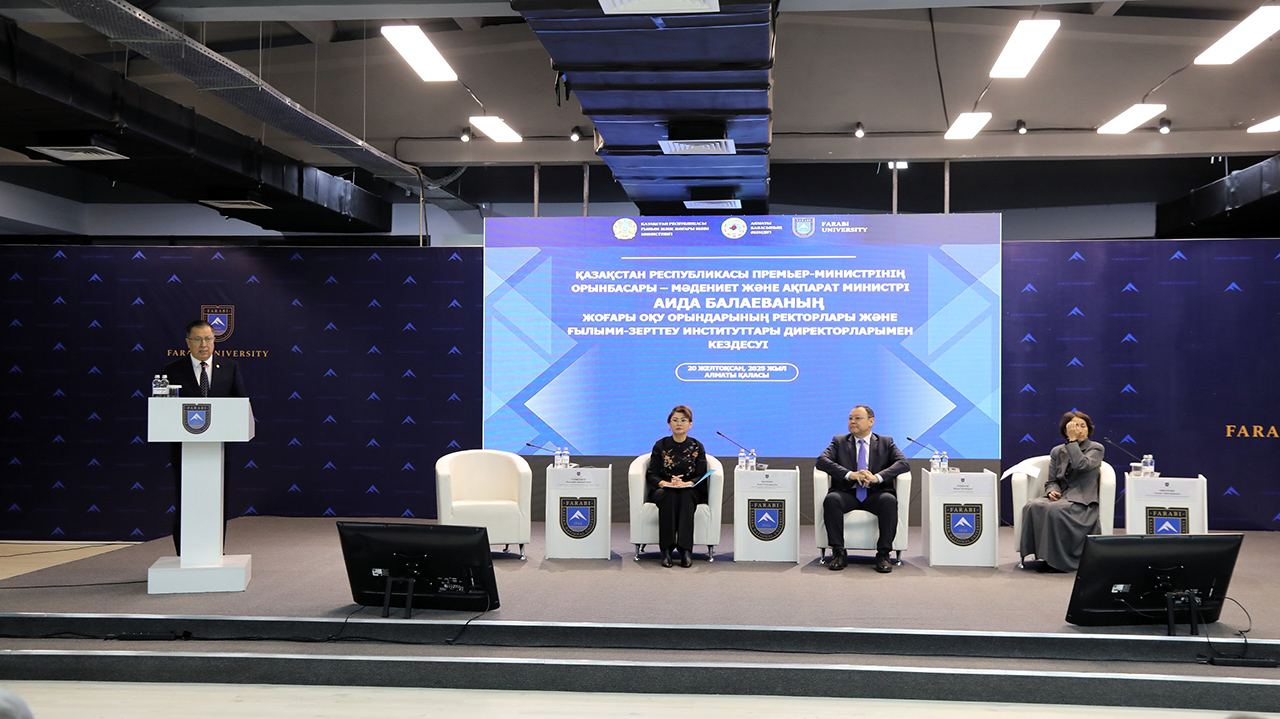Round Table Discussion on the Topic "Transition of Kazakhstan to a Single Time Zone"

Due to switching to a single time zone starting from March, 2024, on February 2, 2024, Associate professor of the Department of Russian Philology and World Literature, Zuyeva N.Yu. held the round table discussion on the topic: "Transition of Kazakhstan to a Single Time Zone" with the 1st year students of the Higher School of Economy and Business.
1. Time Calculation System.
Student Saken Dilyara prepared a report on the time calculation system in which we live.
The Greenwich Mean Time (GMT) system was officially adopted in the United Kingdom by the Railway Clearing House in 1858, and this system lasted until 1978. On January 1, 1972, GMT was replaced by the International Civil Time Standard – Coordinated Universal Time (UTC), by which the whole world now lives.
2. Time Zone Change: How Often and Why Time Has Been Changed in Kazakhstan.
Student Imanrazy Marhaba reported that over the last 100 years, the timekeeping in Kazakhstan has changed multiple times, at least 10 times. Historian and ethno-psychologist Farhat Radjimatov believes that these time changes were associated with the course towards industrialization, the convenience of workers in factories, and overall energy savings, especially considering that such important industrial centers as Almaty, Ekibastuz, Ust-Kamenogorsk, Balkhash, and even Karaganda are located in the eastern half of the country.
3. Advantages of Switching to a Single Time Zone.
Student Mizashev Bekzat said that for health, economy, and human security, it is necessary to use constant time zones, as close as possible to solar (natural) time.
He quoted historian F. Radjimatov saying, "...it is both a return to the original biological rhythms and a convenience in logistics, for example, the time in Kostanay differs from the true astronomical time by more than an hour and a half...
Moreover, Kazakhstan capital Astana and the city of national importance Shymkent are much nearer to the west than the largest metropolis Almaty and have a time difference of more than an hour in astronomical time ."
4. Conclusion.
In conclusion, the students reached a unanimous opinion: "It is clear that we will be switching to a single time zone. There are both advantages and disadvantages, and it's unclear which outweighs the other. We will get used to it anyway. But we will become 1 hour closer to European time. That's not bad."
